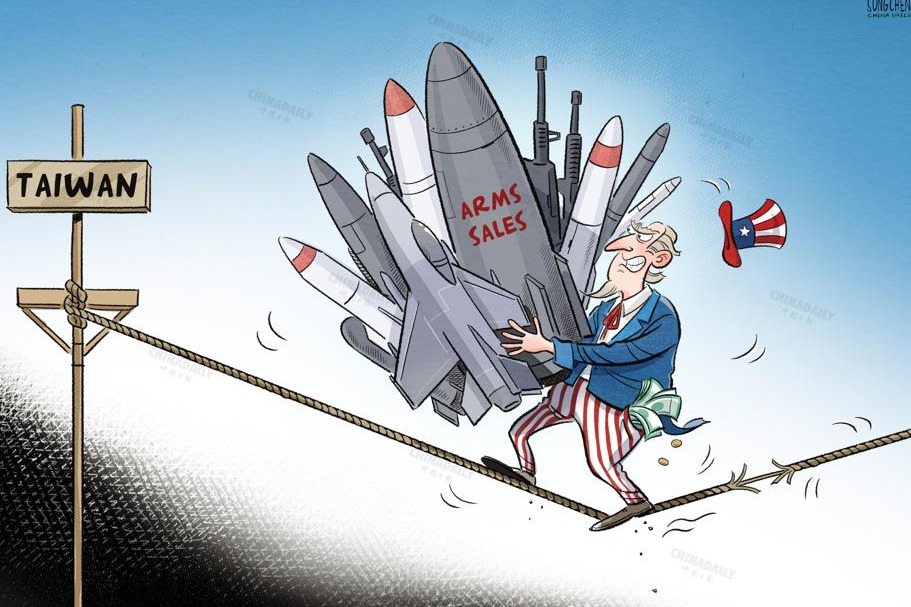‘China threat’ rhetoric fuels uncertainty and instability


The Democratic members of the United States Senate Foreign Relations Committee released a report recently alleging that China is pursuing a long-term strategy to replace the US as the global superpower.
It calls for a whole-of-government effort to counter what it describes as China’s expanding global influence.
This report is steeped in Cold War mentality and outdated zero-sum thinking. It distorts China’s development strategy and misinterprets the country’s relations with the world. Whether motivated by domestic politics or strategic anxiety, such rhetoric only fuels uncertainty and instability in the international community, rather than promoting global cooperation.
China firmly rejects the “China threat” theory and the notion of major power confrontation. As a Foreign Ministry spokesperson emphasized, China has no intention of vying for global dominance or challenging or replacing any country. China consistently pursues an independent foreign policy of peace, basing its foreign relations on mutual respect, peaceful coexistence and win-win cooperation.
In fact, these principles guide all of China’s international engagements, including its growing partnerships across the Global South. Such partnerships and the progress of the Belt and Road Initiative may have struck a nerve with certain US politicians.
China’s engagement with the Global South is rooted in equality and mutual benefit. For instance, according to the General Administration of Customs, China’s trade with economies involved in the BRI reached $1.57 trillion in the first half of this year, up 4.7 percent year-on-year. Sino-African trade reached a record $134 billion in the first five months of 2025, up 12.4 percent year-on-year. The trade volume between China and Latin America reached a record high of $518.47 billion in 2024, up 6 percent year-on-year.
China has also demonstrated responsibility in promoting sustainable development. The country has invested heavily in renewable energy and environmental restoration. As a major supplier of solar and wind technology, it has helped expand developing countries access to clean energy.
In contrast, some US politicians remain stuck in hegemonic thinking, frequently citing national security as a pretext to suppress China’s legitimate development. In recent years, the US government has introduced controls on exports of advanced artificial intelligence chips to China. Chinese students and scholars face increasing visa restrictions. These actions undermine the principles of fair competition and disrupt normal people-to-people exchanges between the two countries.
The narrative that the US is “losing” to China is based on a zero-sum mindset that fails to reflect the reality of an interconnected world. Today’s global challenges, such as climate change, economic recovery and technological governance, require joint solutions, not rivalry. China and the US have in the past engaged in productive dialogue and cooperation through multilateral platforms. These foundations should be preserved and expanded, rather than eroded by suspicion and hostility.
China has always taken a constructive and rational approach to its relationship with the US. China opposes malicious competition and containment strategies. It remains open to cooperation with the US in areas such as climate action, nonproliferation and artificial intelligence, while firmly safeguarding its sovereignty, security and development interests.
US policymakers are urged to adopt an objective and rational understanding of China, abandon their Cold War thinking and ideological bias, and stop attacking and suppressing China. The world does not need confrontation between major powers, but instead sincere cooperation and effective multilateralism. This is the direction China will continue to uphold.


































